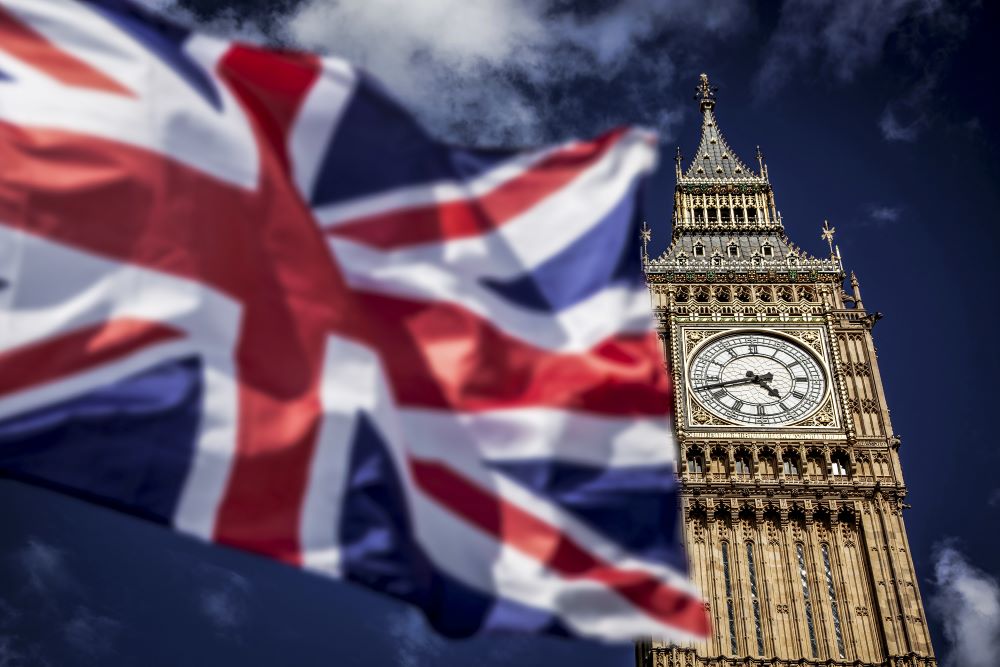
The week began with an anti-climax. After last weekend’s momentum on the Northern Ireland Protocol deal, there was anticipation that an announcement on progress could happen early in the week. But the beginning of the week came and went with no announcement.
One thing that does stay relatively stable in the political world, however, is the rhythm of parliamentary debates. This week there were several areas of trade policy importance discussed in Parliament.
The Electronic Trade Documents Bill
The Electronic Trade Documents Bill had its final Lords Special Public Bill Committee session on Monday (20 February).
Speaking for the government, Lord Parkinson emphasised that the bill is merely the foundational step, not only for the UK’s role in the digitalisation of trade documents, “but on the future digitalisation of all trade”. He added that the Treasury and the newly formed Department for Business and Trade would have to work together on the bill for the UK to be able to reap the benefits of it.
He also noted that businesses are standing “ready and eager” to support the delivery of the bill’s implementation.
The bill will now go to the Lords Report Stage on 14 March 2023. The Report Stage allows all members of the Lords another opportunity to examine and make amendments to a bill.
Westminster Hall Debate – Freeport Proposals for Wales
On Tuesday (22 February), Virginia Crosbie MP held a Westminster Hall debate regarding the freeport proposals for Wales.
In the debate she praised the political harmony that has been shown on the freeport initiative bids, with “differences put aside” as the Welsh government has “matched the constructive spirit with which the UK Government [has] brought forward this exciting freeport opportunity”. She is a strong proponent of the Anglesey freeport bid and spoke in its favour.
Stephen Kinnock MP and Stephen Crabb MP cited their support for the Celtic freeport bid and highlighted the wide-ranging benefits it would bring to the area, particularly in terms of combating climate change and stimulating local communities.
In relation to the timings of the winning bid being announcement, Crabb noted that he thought St. David’s Day (Wed 1 March) would be an opportune time for an announcement, particularly given the freeports “would make a difference for people and communities across Wales”.
International Trade Committee – CPTPP Accession
The International Trade Committee (ITC) is currently holding an inquiry on the advantages and disadvantages of UK membership of the Comprehensive and Progressive Agreement for Trans-Pacific Partnership (CPTPP).
The UK is currently committed to joining the CPTPP, a trade bloc consisting of Australia, Brunei, Canada, Chile, Japan, Malaysia, Mexico, New Zealand, Peru, Singapore and Vietnam.
In a session held on Wednesday, the Committee examined the strength of the trade bloc’s environmental chapter. Witnesses included Paul Baker, CEO at International Economics, Professor Stephanie Rickard, professor of political science at the London School of Economics and Professor Clara Brandi, head of research programme at the German Institute of Development and Sustainability.
Of particular interest was a discussion at the beginning of the session regarding how the environmental chapter in CPTPP compares to other free trade agreements (FTAs).
Brandi noted there are a record number of environmental provisions (137), but that the phrase ‘climate change’ itself is not mentioned in the agreement and that there are gaps in relation to organic food certifications and mercury emissions, for example.
Baker also spoke about the CPTPP’s environmental provisions in comparison to other agreements. He noted that his company, International Economics, had carried out a study of FTAs signed by member states since 2010 and found that around 35% in total contained a provision that addressed environmental issues more generally. Further, only 19% of the FTAs signed between developed and developing countries contained sustainability provisions. He remarked, therefore, that it is still relatively rare for FTAs to contain “fully-fledged environmental provisions”.
He added that most of these FTAs also didn’t contain binding language, but that CPTPP is one of the few FTAs to introduce a “comprehensive framework to deal with environmental protection obligations and it has strong enforcement mechanisms as well”.
Export reception
Westminster also played host to an IOE&IT membership event on Tuesday evening (21 February), where members mingled with representatives from the ITC and other political figures.
Lord Wharton of Yarm, in a keynote address to attendees, said that he was “heartened to see a renewed emphasis on trade across government and across the political divide” over the last decade.
IOE&IT director general Marco Forgione said the event was a “clarion call” for business and government to work together to improve UK exports.



